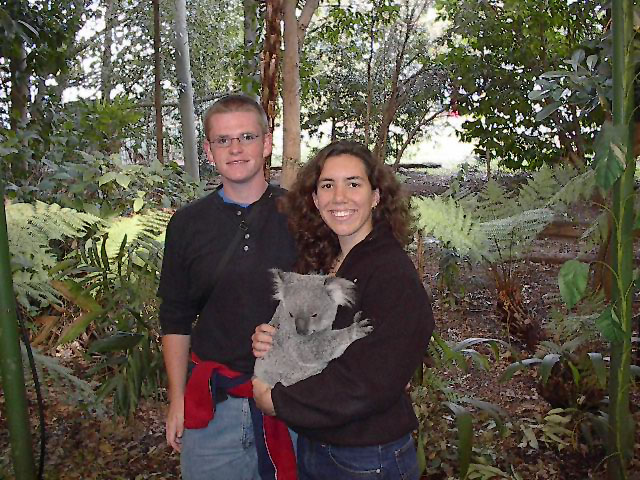
I came home from an evening out to find my Australian home-stay family crowded around the TV, watching the smoke coming from the twin towers that were on fire.

When 9/11 occurred, I was on a semester abroad in Brisbane, Australia, studying at the University of Queensland. I was with a group of 25-30 students from my school, including my future wife. I came home from an evening out in the city to find my Australian home-stay family crowded around the TV, watching the smoke coming from the twin towers that were on fire. Geoff, the father, called out to me when I came in, and I'll never forget his words. He said, "Hey, you're under attack, mate!" When I went to bed that night both towers were on fire, but neither had fallen, and I had no idea about the attack at the Pentagon or the crash of the airliner in Pennsylvania. When the next day came for me, it was still 9/11 in the U.S. and I quickly learned about everything that had happened up to that point. It was shocking! The administrators of the College of Marine Studies at the University opened the small school chapel for us and gave us time to reflect or pray, whatever we wanted to do for as long as we needed to. The short term impacts of 9/11 are what I remember most. My father had made reservations to fly to Australia and meet up with me at the close of my semester. He was so shaken by the attacks of 9/11 that he canceled his trip almost immediately, without a second thought. I know my father feels like he did the right thing by canceling his trip, but I still think he was acting irrationally and sacrificed a great opportunity. Traveling home only months after 9/11 was quite different. Fewer flights meant they were all totally packed and when I stepped off the plane, there were soldiers with rifles all over the airport. It was a shocking transition. It was not the same U.S.A. that I left and we've been living with this "new normal" for 20 years.
Lee Stirling
